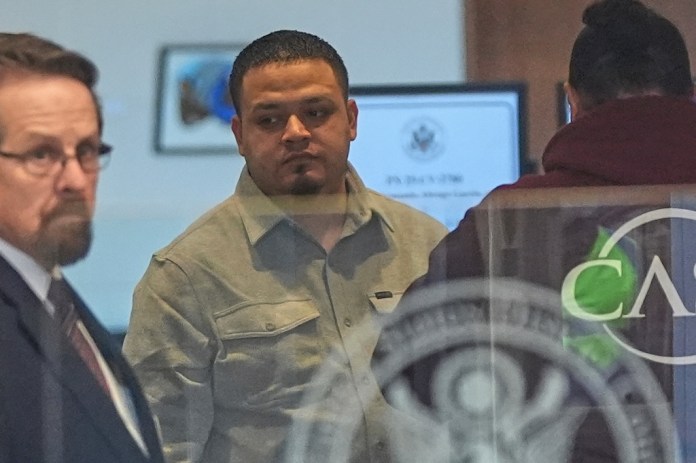DOJ drops Jan. 6 obstruction charges in more than half of pending cases – Washington Examiner
The Department of Justice (DOJ) has recently dropped nearly half of the obstruction charges against defendants involved in the January 6 Capitol riot. This decision follows a significant Supreme Court ruling in June that determined the DOJ had been applying an overly broad interpretation of a statute regarding corrupt obstruction of official proceedings. As a result, approximately 60 out of 126 defendants had their pending obstruction charges dismissed, significantly reducing the potential for severe prison sentences.
Previously resolved cases have also been affected, with the DOJ indicating it does not oppose dismissing charges in about 40 of those cases. The recent DOJ data reveals a majority of violations under the obstruction statute, 18 U.S.C. § 1512(c)(2), are being dropped before trial. However, defendants will still face other criminal charges. The DOJ is continuing to pursue obstruction charges for 13 defendants while evaluating others.
Notably, following the Supreme Court’s decision, former Virginia police officer Thomas Robertson had his prison sentence reduced from seven to six years. The Supreme Court ruling underscored that prosecutors must show that a defendant actually disrupted the integrity of materials used in official proceedings to establish a violation of the obstruction statute.
DOJ drops Jan. 6 obstruction charges in more than half of pending cases
The Biden administration‘s Department of Justice has dropped nearly half of the obstruction charges pending against defendants involved in the Jan. 6 Capitol riot following a significant Supreme Court ruling in June, according to recent data.
In June, the Supreme Court determined that the DOJ had applied an overly broad interpretation of a statute that imposes up to 20 years in prison for those who “corruptly obstruct, influence, or impede any official proceeding.” Since the ruling in Fischer v. United States, about 60 out of 126 defendants had their pending obstruction charges dismissed, according to DOJ data released last week, which significantly diminishes the threat of decades of jail time for the defendants.
Of the 133 defendants whose cases were already resolved before the Fischer decision, the DOJ indicated it “does not oppose dismissal or vacatur of the charge in approximately 40 cases” while it continues to assess the rest.
The DOJ’s recent data dump reflects the findings of a Washington Examiner investigation last month that uncovered a majority of 18 U.S.C. § 1512(c)(2) violations were being dropped before defendants head to trial. For many defendants, the charge amounted to the most severe violation they faced, as their cases otherwise featured lesser violations such as misdemeanor charges for trespassing or unlawful picketing.
Federal officials wrote in their data release brief that no defendant was charged solely under the obstruction count, meaning all defendants will still face other criminal charges even if the obstruction charge is dropped.
The DOJ is still pursuing obstruction charges for 13 defendants and evaluating its next steps for the remaining cases.
Last week, former Virginia police officer Thomas Robertson became the first defendant to have his sentence reduced by one year in light of the Fischer decision. He was initially sentenced to seven years in prison and is now serving six.
The Supreme Court’s decision emphasized that prosecutors must show that a defendant disrupted the “availability or integrity” of materials used in an official proceeding to prove a violation of the obstruction statute.
Justice Ketanji Brown Jackson, an appointee of President Joe Biden, suggested in a concurring opinion that charges could still move forward if they involved tampering with or attempting to tamper with evidence used during the Jan. 6 events.
The DOJ appears to be applying this narrow caveat in at least 13 cases in which the government believes the obstruction count can still be applied.
For example, prosecutors told defendants Don and Shawndale Chilcoat on Aug. 21 that there is sufficient evidence to suggest that the siblings from Ohio understood that their trek onto the Senate floor would block Congress from meeting on Jan. 6 to certify Biden’s victory.
“From this evidence, the jury certainly will be able to infer that Shawndale Chilcoat attempted to impair the availability of the electoral college votes which Congress was to consider,” Assistant U.S. Attorney Michael Romano wrote in a court filing last month.
As the 2020 election subversion case in Washington, D.C., is beckoning more briefs from special counsel Jack Smith‘s team of prosecutors this fall, prosecutors may provide additional clarity over the government’s decision to defend two obstruction charges against former President Donald Trump in that four-count indictment.
" Conservative News Daily does not always share or support the views and opinions expressed here; they are just those of the writer."




